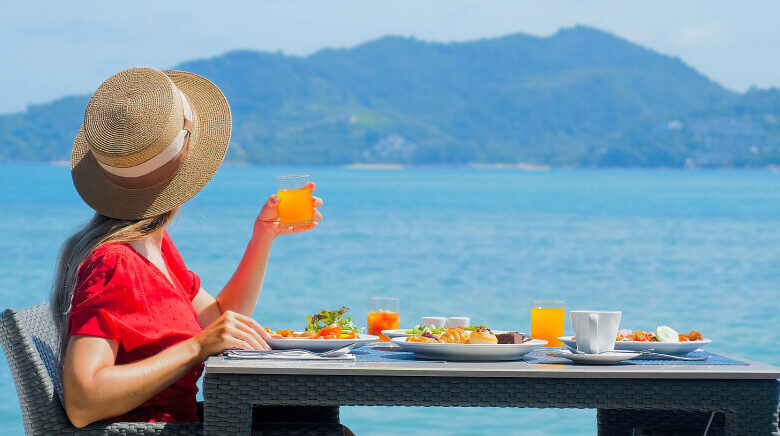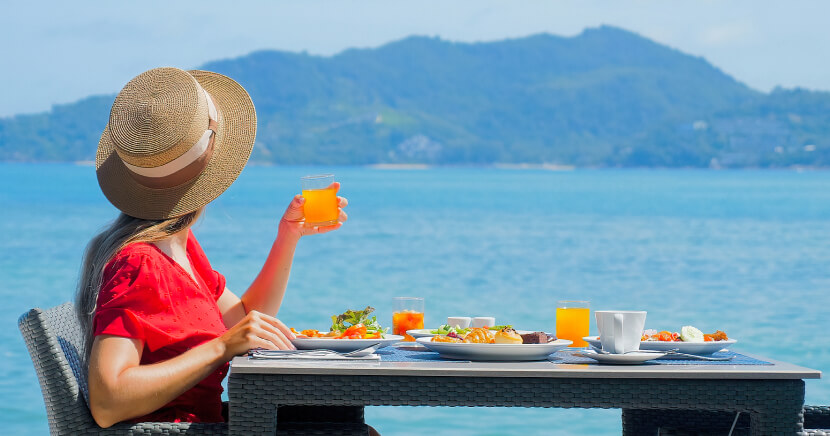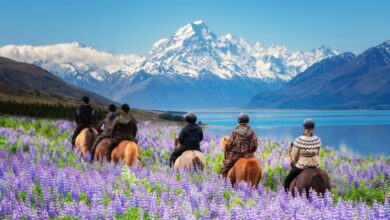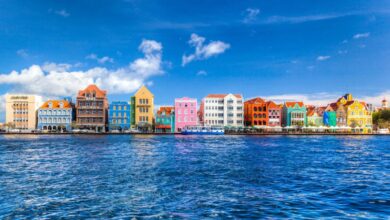

The luxury travel industry is undergoing its most significant transformation in decades, evolving beyond opulent accommodations and exclusive destinations to embrace deeper values of personalization, sustainability, and transformative experiences. Today’s affluent travelers seek more than mere comfort and status—they pursue meaningful connections, personal growth, and positive impact through their journeys. This paradigm shift reflects changing definitions of luxury itself, moving from material displays to experiential richness and conscious consumption. This comprehensive analysis explores how luxury travel is reinventing itself to meet the sophisticated demands of modern high-net-worth individuals while examining the economic, technological, and cultural forces driving this evolution.
A. The New Luxury Paradigm: Beyond Opulence to Transformation
Modern luxury travel has transcended traditional markers of wealth to embrace more meaningful and personalized experiences that resonate with contemporary values.
A. Experiential Luxury Over Material Display: Affluent travelers increasingly value unique experiences over tangible luxuries.
-
Access-Over-Ownership Experiences: Ultra-high-net-worth individuals now prioritize exclusive access to people, places, and experiences unavailable to the general public. This includes private viewings of archaeological sites normally closed to visitors, dinners in historical monuments after public hours, and learning sessions with renowned experts in their fields. Companies like Black Tomato and Original Travel specialize in creating these impossible-to-replicate experiences.
-
Skill-Based Immersion Travel: Luxury travelers are investing in developing new capabilities through intensive learning journeys. This includes everything from mastering Italian cooking with Michelin-starred chefs in their home kitchens to training with professional athletes in exclusive facilities. These experiences provide lasting value beyond the trip itself through acquired skills and knowledge.
-
Philanthropic Journey Integration: High-end travel increasingly incorporates meaningful charitable components, such as participating in conservation efforts with leading scientists or contributing to community development projects. These experiences provide emotional satisfaction that transcends traditional luxury indulgence while creating positive impact.
B. Hyper-Personalization Revolution: True luxury now means experiences perfectly tailored to individual preferences, interests, and even biological rhythms.
-
Biometric Customization: Forward-thinking luxury providers like Six Senses and Aman Resorts now incorporate guest biometric data to customize everything from meal plans to activity schedules based on individual stress levels, sleep patterns, and energy cycles. This scientific approach to personalization represents the new frontier of luxury service.
-
Psychological Profiling Services: Ultra-luxury tour operators employ psychologists to help design journeys that align with clients’ personality types, learning styles, and emotional needs. This approach ensures travel experiences resonate on deeper psychological levels than standard luxury offerings.
-
Predictive Preference Anticipation: Through sophisticated data analysis and detailed pre-arrival consultations, luxury providers now anticipate guest needs before they’re expressed. The best luxury hotels track hundreds of data points about returning guests to create seamless, intuitive experiences that feel personally crafted.
C. Time as the Ultimate Luxury: For time-poor elites, the greatest luxury is often efficiency and seamless experiences.
-
Frictionless Travel Integration: Luxury now means eliminating all travel hassles through dedicated travel concierges who handle everything from visa processing to packing to itinerary optimization. Services like John McAslan + Partners design entire travel ecosystems that remove every potential point of friction.
-
Productivity-Enhancing Environments: High-end business travelers increasingly seek accommodations that optimize their work performance through advanced technology, ergonomic design, and wellness integration. Hotels like The Office in London and Yotel offer premium workspaces that rival corporate headquarters.
-
Digital Detox Sanctuaries: Conversely, some luxury travelers seek complete disconnection in environments designed for mental restoration. Destinations like Triple Creek Ranch in Montana and Amangiri in Utah offer carefully controlled digital minimalism that allows genuine mental refreshment.
B. Sustainable and Regenerative Luxury: Conscience as the New Currency
Modern luxury travel increasingly integrates environmental and social responsibility, with affluent travelers expecting both opulence and ethical integrity.
A. Conservation-Focused Experiences: Luxury and environmental stewardship are becoming increasingly intertwined.
-
Philanthropic Wildlife Experiences: High-end safari operators like &Beyond and Singita now offer experiences where guests directly contribute to conservation efforts while enjoying unparalleled wildlife viewing. These might include accompanying researchers on field work or participating in animal monitoring programs.
-
Carbon-Neutral Luxury Journeys: Companies like Natural Habitat Adventures and Micato Safaris offer carbon-neutral luxury expeditions where all emissions are calculated and offset through verified projects. Some operators are moving beyond offsetting to carbon-negative travel experiences.
-
Marine Conservation Integration: Luxury resorts like Misool in Indonesia and Four Seasons Landaa Giraavaru in the Maldives offer guests opportunities to participate in coral reef restoration, marine research, and conservation programs while enjoying five-star amenities.
B. Community-Centric Tourism Models: Luxury properties are increasingly measured by their positive impact on local communities.
-
Ethical Employment and Sourcing: Leading luxury brands now emphasize local hiring, fair wages, and comprehensive staff development programs. Properties like Nihi Sumba in Indonesia and Song Saa in Cambodia have become models for community-integrated luxury that benefits local populations.
-
Cultural Preservation Partnerships: Luxury travelers increasingly seek experiences that actively support cultural preservation, whether through stays at restored historical properties or participation in indigenous-led experiences that fund cultural continuity.
-
Local Economic Multipliers: The most respected luxury operators now measure their local economic impact through detailed metrics tracking how guest spending circulates within destination communities. This transparent approach appeals to conscientious luxury consumers.
C. Regenerative Design and Operations: Luxury properties are leading the transition from sustainability to regeneration.
-
Net-Positive Environmental Impact: Properties like Bucuti & Tara Beach Resort in Aruba and Hotel Marcel in Connecticut have achieved carbon-negative operations, while others like 1 Hotels actively improve their local environments through rewilding and habitat creation.
-
Circular Economy Integration: Luxury hotels are implementing comprehensive circular systems where waste is eliminated through reuse, repurposing, and recycling. The Savoy in London has achieved 90% waste diversion from landfills through sophisticated circular systems.
-
Biodiversity Enhancement: Luxury developments increasingly function as biodiversity sanctuaries, with properties like Playa Viva in Mexico and Finca Bellavista in Costa Rica demonstrating how tourism can actively enhance local ecosystems rather than merely minimizing damage.
C. Technological Innovation in Luxury Travel
Cutting-edge technology is transforming luxury travel experiences, from planning phases through post-trip memories.
A. Seamless Digital Integration: Technology now enables perfectly smooth travel experiences that anticipate needs and eliminate friction.
-
Biometric Travel Ecosystems: Luxury travelers increasingly move through airports, hotels, and destinations using facial recognition and other biometric systems that eliminate document handling and waiting. Airlines like Emirates and Etihad lead in implementing these seamless biometric journeys.
-
AI-Powered Personalization: Artificial intelligence systems analyze traveler preferences, behaviors, and feedback to continuously refine service delivery. The Cosmopolitan of Las Vegas famously used AI to personalize room environments, while cruise lines like Royal Caribbean employ AI to optimize guest experiences.
-
Integrated Digital Concierge: Luxury hotels now offer app-based concierge services that handle everything from spa bookings to restaurant recommendations to transportation, with increasing use of AI to anticipate needs before they’re expressed.
B. Immersive Technology Experiences: Advanced technologies are creating entirely new categories of luxury experiences.
-
Virtual Reality Previews: Luxury travelers can now take immersive virtual tours of destinations, accommodations, and experiences before booking. Companies like YouVisit create detailed VR experiences that allow thorough evaluation of luxury options.
-
Augmented Reality Enhancement: AR applications overlay historical information, navigation cues, and contextual data onto real-world environments, enriching sightseeing and cultural experiences. Museums and historical sites increasingly offer AR-enhanced private tours for luxury visitors.
-
Holographic Entertainment: Ultra-luxury properties are beginning to incorporate holographic performances and presentations, creating unique entertainment experiences unavailable elsewhere. The Yacht of Silicon Valley features holographic business presentations and entertainment.
C. Wellness Technology Integration: Cutting-edge health and wellness technologies are becoming standard in luxury travel.
-
Biometric Monitoring: Luxury wellness resorts like Canyon Ranch and Six Senses now incorporate continuous biometric monitoring to customize wellness programs based on real-time physiological data.
-
Sleep Optimization Technology: High-end hotels increasingly feature high-tech sleep environments with temperature-regulated bedding, smart lighting that supports circadian rhythms, and noise-cancellation systems that guarantee perfect rest.
-
Longevity and Performance Enhancement: Luxury retreats now offer advanced biological optimization programs incorporating everything from cryotherapy to hyperbaric chambers to IV nutrient therapy, appealing to travelers focused on health span extension.
D. Exclusive Access and Privacy: The New Status Symbols
In an increasingly transparent world, true luxury often means discretion, privacy, and access to the inaccessible.
A. Ultra-Private Travel Experiences: The wealthiest travelers increasingly seek complete seclusion and anonymity.
-
Private Island Evolution: The concept of private island resorts has evolved from simple exclusivity to comprehensive self-contained ecosystems. Brands like Velaa Private Island and North Island continue to raise the standard for complete privacy combined with limitless luxury.
-
Anonymous Travel Services: A growing sector specializes in completely discreet travel arrangements where high-profile clients can move through the world without leaving digital or paper trails. These services handle everything under codenames and through blind trusts.
-
Residential-Style Luxury: The line between luxury hotels and private residences continues to blur, with companies like The OWO Residences in London and The Residences at Dorchester Collection offering hotel services within completely private homes.
B. Impossible Access Experiences: The most sought-after luxury experiences are those that cannot be purchased through conventional channels.
-
Cultural Institution After-Hours Access: Luxury tour operators now arrange private access to museums, historical sites, and cultural institutions outside normal operating hours. Context Travel and Abercrombie & Kent specialize in these exclusive after-hours experiences.
-
Closed-Door Dining Experiences: The most exclusive culinary experiences now occur in private locations with renowned chefs who no longer operate public restaurants. These might include meals in historical palaces, on remote mountain peaks, or in other extraordinary settings.
-
Scientific and Research Access: A growing segment of luxury travel provides access to active scientific research sites, from astronomical observatories to archaeological digs to marine research vessels. These experiences satisfy intellectual curiosity while supporting important work.
C. Multi-Generational and Family Luxury: High-net-worth families are driving demand for experiences that work across generations while maintaining privacy and exclusivity.
-
Custom-Designed Family Compounds: Luxury operators now design complete experiences for extended families, with customized activities for different age groups while maintaining family togetherness. These often involve taking over entire small resorts or private villas with dedicated staff.
-
Educational Family Journeys: Affluent families increasingly prioritize educational experiences that combine luxury with learning, whether studying marine biology while sailing private islands or exploring history with renowned scholars at archaeological sites.
-
Legacy Creation Travel: Some families use travel to create shared memories and traditions across generations, often returning to the same exclusive properties annually and developing deep relationships with staff and destinations.
E. The Future of Luxury Travel: Emerging Trends and Directions
The luxury travel evolution continues to accelerate, with several emerging trends shaping its future direction.
A. Space and Extreme Environment Tourism: The final frontier of luxury travel is literally beyond this world.
-
Commercial Space Development: Companies like Virgin Galactic, Blue Origin, and SpaceX are making suborbital space travel increasingly accessible to private citizens, with orbital stays and lunar tourism on the horizon. While currently limited to the ultra-wealthy, prices are expected to decrease over time.
-
Deep Sea Exploration: For those preferring to look inward rather than outward, companies like EYOS Expeditions offer deep sea exploration using private submersibles capable of reaching the ocean’s greatest depths. These journeys combine extreme adventure with ultimate luxury.
-
Polar Expedition Luxury: The polar regions have become the new frontier for luxury expedition travel, with companies like Silversea and Ponant offering five-star accommodations while exploring Earth’s most remote environments.
B. Longevity and Performance Optimization Retreats: Luxury travel is increasingly focused on health span extension and cognitive enhancement.
-
Comprehensive Biological Optimization: Resorts like the Vivamayr in Austria and Palazzo Fiuggi in Italy offer intensive programs combining advanced diagnostics, personalized treatments, and lifestyle optimization in luxurious settings.
-
Cognitive Performance Enhancement: New luxury retreats focus specifically on brain health and cognitive enhancement through everything from neurofeedback to nootropic supplementation to specialized cognitive training protocols.
-
Epigenetic and Genetic Optimization: The most advanced wellness retreats now incorporate genetic testing and epigenetic analysis to create highly personalized programs aimed at optimizing biological function and slowing aging processes.
C. Transformative and Meaning-Seeking Travel: The ultimate luxury for many is personal transformation and deeper meaning.
-
Philosophical and Wisdom Journeys: Luxury operators now create experiences centered around learning from wisdom keepers, philosophers, and spiritual teachers in settings conducive to deep reflection and personal insight.
-
Vision Quest and Rite of Passage Experiences: Drawing from indigenous traditions but adapted for modern luxury travelers, these experiences provide structured opportunities for life transition marking and personal renewal.
-
Contemplative Retreats: For those overwhelmed by modern life, luxury retreats offering genuine silence, digital disconnection, and guided contemplation represent the ultimate refreshment. Places like Spirit Rock Meditation Center offer luxury accommodations alongside serious contemplative practice.
Conclusion: The Reimagined Luxury Travel Landscape
The luxury travel industry’s transformation reflects broader shifts in how wealth is defined and expressed in the 21st century. The new luxury traveler seeks experiences that are not just opulent but meaningful, not just exclusive but ethical, not just comfortable but transformative. The most successful luxury providers will be those that understand these evolving values and create experiences that satisfy deeper human needs for connection, growth, and purpose. As the industry continues to evolve, the distinction between luxury travel and extraordinary living will continue to blur, with the journey becoming not just a temporary escape but an integral part of a well-lived life. The future of luxury travel lies not in more expensive versions of traditional offerings, but in completely reimagined experiences that resonate with the values and aspirations of modern elite travelers.
Tags: luxury travel, bespoke experiences, sustainable luxury, exclusive travel, high-end tourism, luxury trends, personalized travel, luxury transformation, elite tourism, luxury innovation, luxury market, travel evolution






